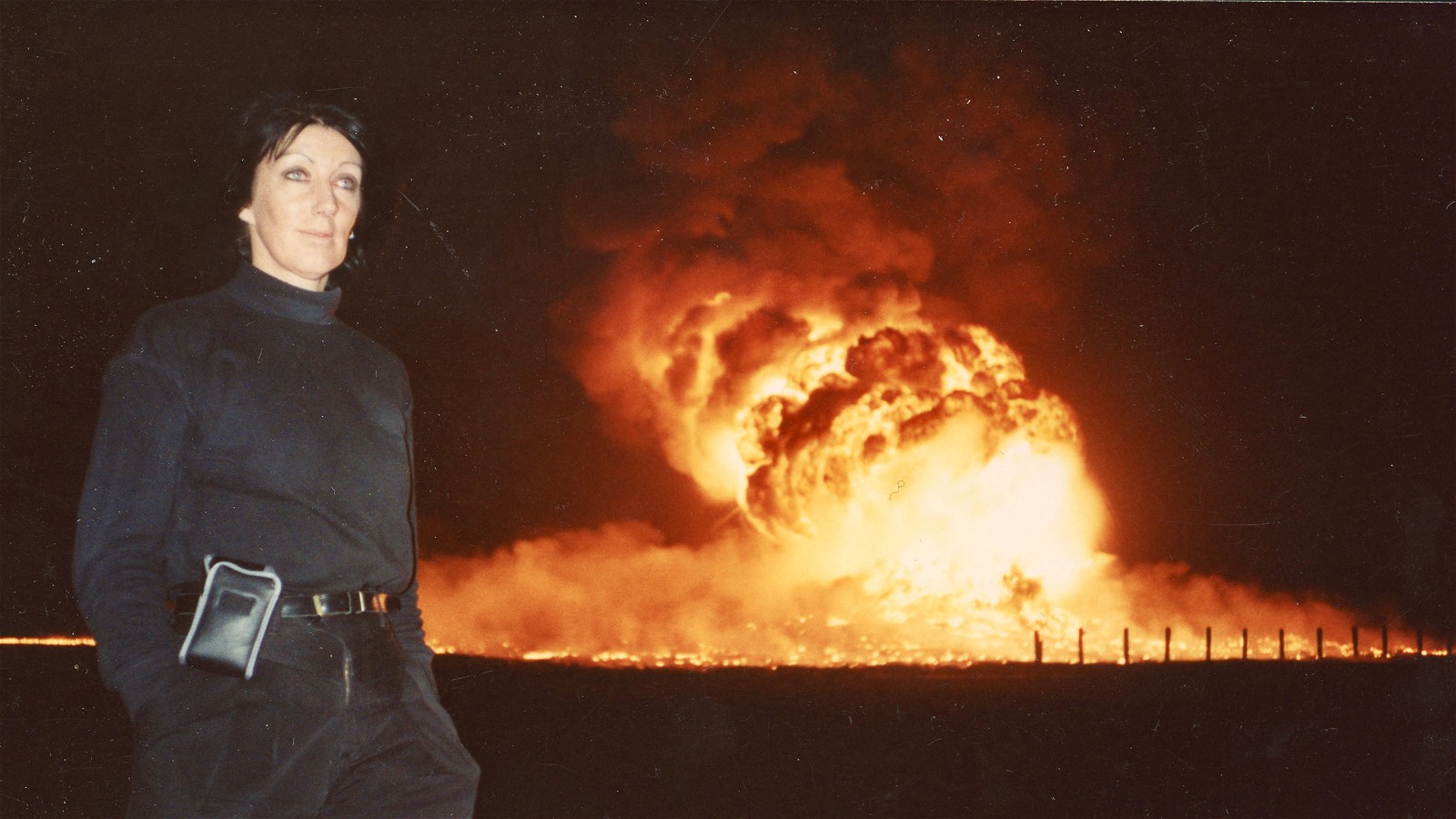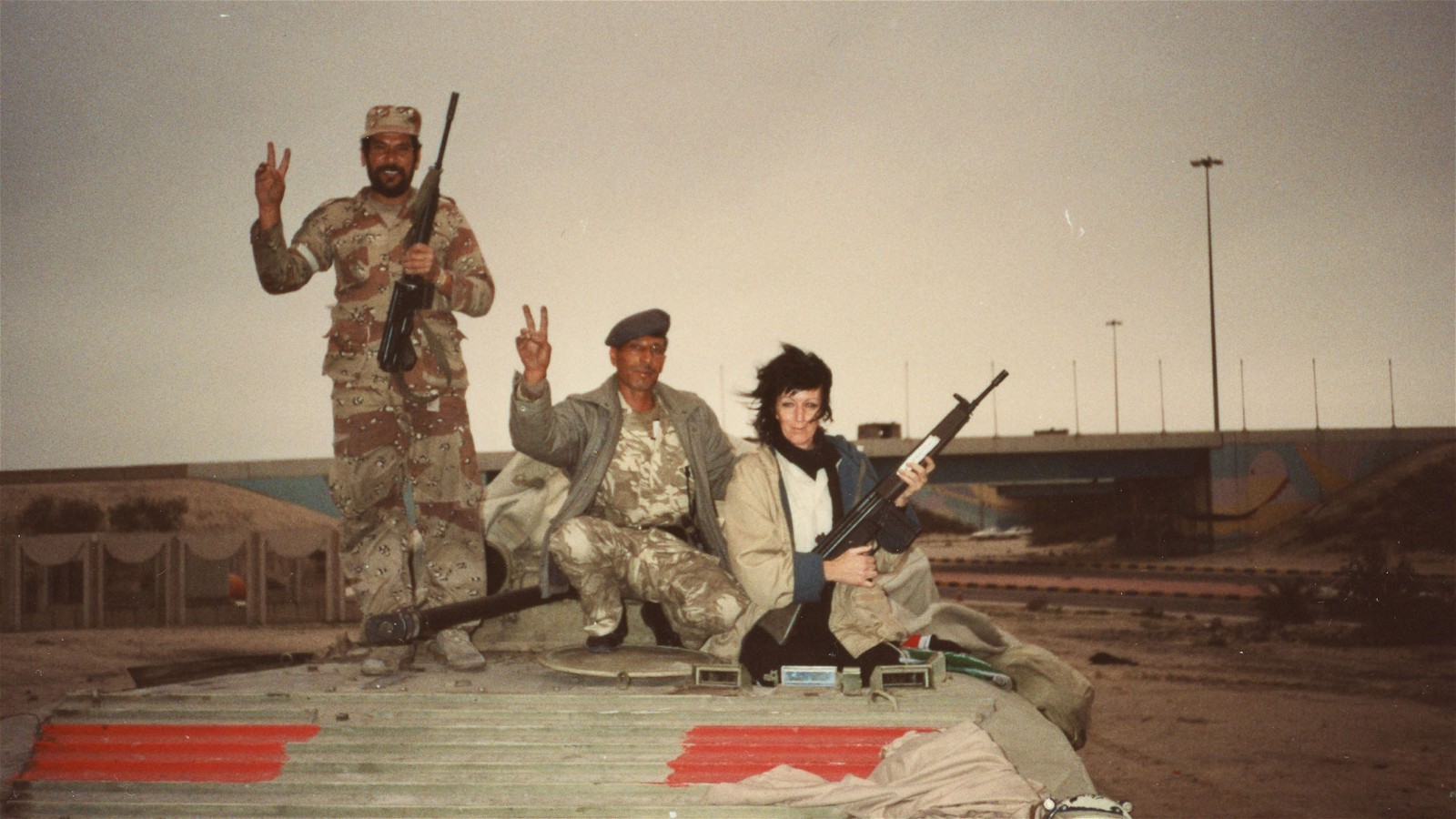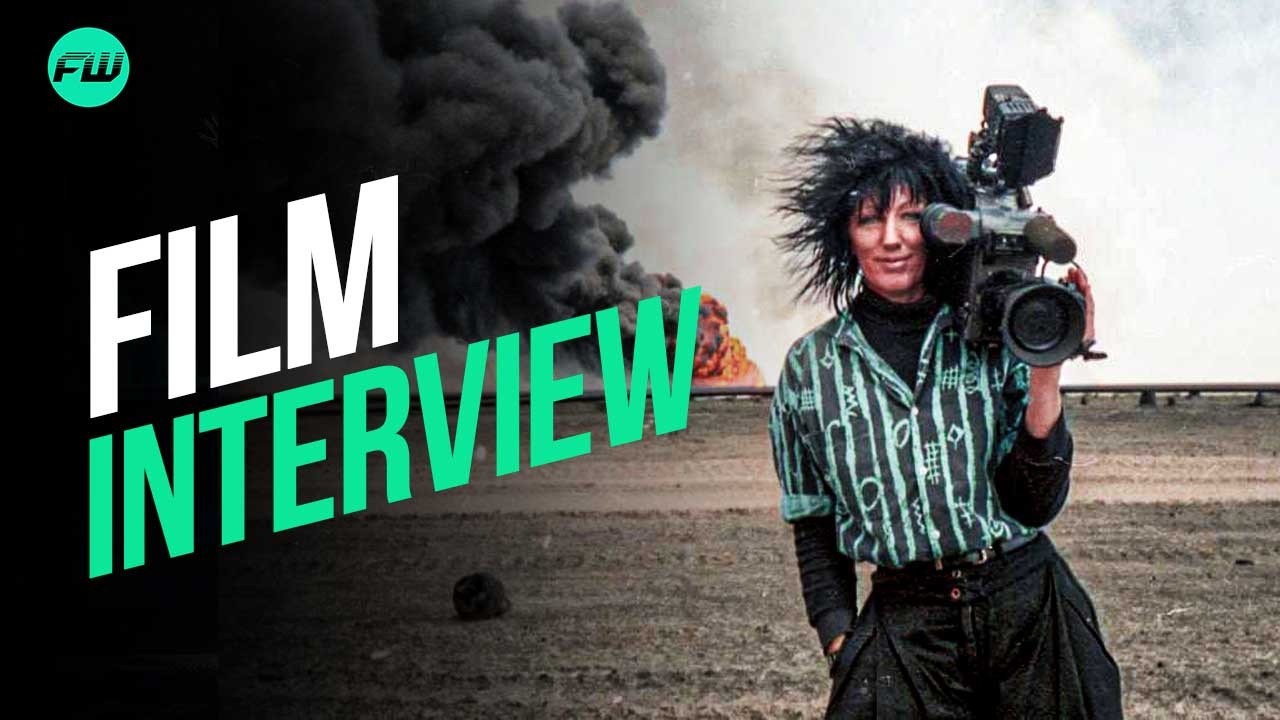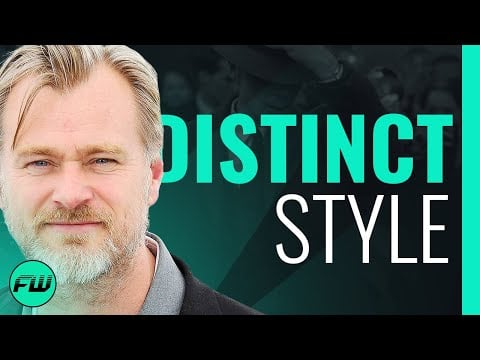New Zealander Lucy Lawless achieved legendary status thanks to her role as the eponymous heroine in Xena: Warrior Princess, which first aired from 1995-2001. Lawless is clearly extremely talented, and with her directorial debut, Never Look Away, she has entered her multi-hyphenate phase.
Premiering at the 2024 Sundance Film Festival, Never Look Away is a documentary telling the story of New Zealander journalist Margaret Moth, from her rambunctious personal drama to her adrenaline-chasing work on the front lines of war.
We at FandomWire had the opportunity to talk with the legendary actress-turned-director about her extraordinary documentary.
Lucy Lawless discusses her directorial debut Never Look Away
FandomWire: You are arguably best known for your work as an actress on Xena: Warrior Princess, so to see you make your directorial debut with a documentary about journalist Margaret Moth is certainly an unexpected career progression. Why did this project make you want to make the leap to the director’s chair?
Lucy Lawless: I just love bad girls, and Margaret’s just got a really compelling story. I honestly made it for Kiwis. And we pitched it to the New Zealand Film Commission, and they agreed that we needed to know more about our own lost heroine. It’s almost like Margaret chose me.
FandomWire: Do you think your experience as an actress helped prepare you for your work as a director on Never Look Away?
Lawless: I feel like when you create a character, I create a feeling in myself of who it is to be this, who wants to say these words, right? That’s essentially what acting is. And when you’re directing, the film is kind of your character, you’re creating all these sensations for the audience to experience. So it uses a lot of other disciplines.
So that was the biggest thing that I learned on this project that filmmaking is not just about shots. And it’s not just about the story. What’s truly filmmaking is putting the audience on the edge of their seats or making them lean in. You’ve got to hook them, and you’ve got to keep them there. So that really helped make the decisions about where we start the film. I don’t want to say, “Margaret was a really good journalist who liked to get up close,” that’s not hooky!
You want to talk about a human being who’s really flawed and transgressive, and then we’ll explore the professional and the human being. The strongest thing to start with was this mystery woman who shows up in Austin, Texas, and denies that she has a history. She can’t remember anything, she’s got amnesia, and everybody just buys it hook, line, and sinker.
So she just lives this entirely hedonistic lifestyle there and finally wangled her way into CNN news. She’d been New Zealand’s first female camera operator, and finally gets a job in American television and gets herself sent off to war. And that’s where she found this Zen, you know, right at this burning coal face of conflict. That’s where she felt most at peace. And then all the hedonism of her private life kind of dropped away, and then the film really gets going.

Also Read: The Boys in the Boat Review: George Clooney Misdirects Otherwise Mediocre Olympic Rowing Drama
“People used to say audiences aren’t interested in seeing female leads. And I’m I think I’m the lucky recipient of a change in our worldview and change in the market.” – Lucy Lawless
FandomWire: So many stories of powerful women go unseen and unheard. Although Margaret Moth’s story did reach international attention at one point, her legacy outside of particular spheres is not as much as she deserves. How do you hope Never Look Away will change this?
Lawless: Is that my responsibility really, to change that? I’m just gonna do what I do. And I don’t really have an agenda — I just happen to be a woman who wants to make a film about women. And I’m lucky to be in a time where that is seen as desirable. People used to say audiences aren’t interested in seeing female leads. Look, when I was starting out as Xena, I remember the French guy we went to trying to sell the show, he was like, “The French will never accept a female action hero! Never!” And like… “Wait a minute! Joan of Arc, dude!” And Xena was immensely popular, he was just wrong.
And now we’re turning to become diverse, even standards of beauty have changed. Like people with much more interesting features are considered beautiful and are popping up and advertising and desirable and it’s wonderful. And I’m I think I’m the lucky recipient of a change in our worldview and change in the market. But I was there at the beginning, you know, and I think for me, it started with Sigourney Weaver in Alien. She was my model for Xena. Buffy came out a little bit after that. So we were part of that new wave, so I thank God for those feminists and the men who love them.
FandomWire: One of my favorite tidbits in the film was what one interviewee said about the complexity of emotion of war. It’s horrifying, and you don’t want to glorify it, but in the moment, it creates a sort of rush of adrenaline. How did this inform the tone you took with Never Look Away?
Lawless: I love that he said that. That was Stef Kotsonis, who is coming to the premiere, which is really thrilling to have him with us because he’s such an important part of the film. I think people perceive him as being the most reliable witness. And he’s the guy you want to be friends with, you know? That he said that, he dared to be really truthful about something that might be judged, even by his peers. You might be like, “It might be true, but don’t say it for God’s sake!”
The human experience of near-death things can be sort of weirdly chemically thrilling to the human body. That’s why we go on rollercoasters, right? That’s why we like to have the bejesus scared out of us at horror movies when there’s no real danger. Fear can be fun, but when the danger is real, the rush is even more intense. I love people who dare to tell their truth. I’m not going to tell them that they’re wrong. They’re telling their memory, and memory is really imperfect, and I love that.
Sometimes, I think the greater truth is from an aggregate of everybody’s stories. So that’s what I let it be. I let the audience decide how they feel. I hope nobody ever feels manipulated because I hate that myself — I don’t wanna feel manipulated by a director to feel a certain way or think a certain thing.
I’m just gonna lay all the facts out there about her drug use and her multiple lovers — I didn’t even tell the whole truth, you know, I couldn’t fit it all in. But she was a very spicy character. And to just let it all out there without judgment is my gift to the audience so that they get to make up their minds.

FandomWire: Considering the ongoing international conflicts, like in Ukraine or the Middle East, I’d say Moth’s life and message are as timely as ever. What do you hope audiences will take away from Never Look Away about the reality of war journalism?
Lawless: One thing that was really important to me is that people respect those people on the front line, those journalists who are literally dying to bring us those images. They’re trying to bring us the truth because they care about the fate of the noncombatants of war. Those people who are putting their bodies on the line like Margaret, deserve our respect and our protection. Margaret was one of the first people to be shot deliberately by the aggressors in a conflict. it became after that kind of de rigueur — it’s common these days. It’s very dangerous for journalists.
Prior to Margaret being shot in the Bosnian War, journalists were kind of seen as almost like the Red Cross. Even the Red Cross these days gets shot at. Ambulances too. I would love people to think about the cost and dangers of being a news gatherer and anything we can do to promote respect for them is important because they’re trying to bring respect to the innocent victims of conflict.
FandomWire: With Never Look Away, you manage to maintain a level of powerful intimacy against the exciting backdrop of war. How did you manage to pull off this balancing act?
Lawless: Well, it’s about the true experience of covering war, when in that zone, but it’s also about the true expense of being in love with Margaret, which is a very fraught experience as well. So I just chose the people who could show that, like Stef, such a human. He has such a warmth and such reliability. When he talks about being there, you feel like it’s your brother talking, and you believe him.
And also, he was there in the intimate moments when the camera wasn’t rolling. The truth is, war has a lot of boring stuff. It’s uncomfortable, it’s ugly, it’s not cinematic at all. Mostly, it’s not. So we have chosen the images to take you on a journey. It’s not it’s not meant to be a definitive exploration of war coverage. This is an entertaining ride through a roller coaster of a life.
Never Look Away is screening at the 2024 Sundance Film Festival runs January 18-28 in-person in Park City, UT and online from January 25-28.
Also Read: Good Grief Review: Dan Levy’s Directorial Debut Is Charming Despite Cliches
Follow us for more entertainment coverage on Facebook, Twitter, Instagram, and YouTube.



